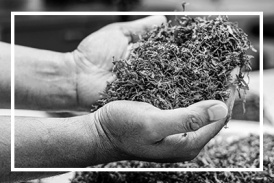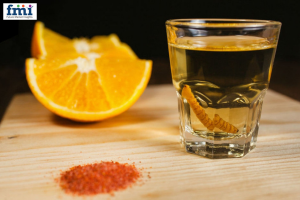Mezcal Market to Hit USD 1.3 Billion by 2035 Amid Soaring Global Demand for Artisanal Spirits | FMI
The Mezcal market is experiencing strong growth, driven by rising consumer interest in artisanal and premium alcoholic beverages.
Mezcal, a traditional Mexican spirit distilled from various agave species (excluding blue agave), is deeply rooted in cultural heritage and artisanal craftsmanship. While Oaxaca remains the epicenter of production, the beverage is gaining worldwide traction, particularly in the U.S., Canada, Japan, and across Europe. The surge in demand has led to the emergence of several craft distilleries globally, underscoring a larger trend toward premiumization and authenticity in the alcoholic beverages market.
Your Guide to Market Intelligence – Download a Sample Copy: https://www.futuremarketinsights.com/reports/sample/rep-gb-5067
Craft and Premium Mezcal Leading Market Expansion
The increasing demand for premium artisanal mezcal is shaping the future of the global market. Consumers, especially millennials and Gen Z, are opting for small-batch, craft distilleries that emphasize heritage, transparency, and authenticity. Craft mezcal sales in the United States have experienced a noticeable uptick, fueled by growing awareness of the Oaxacan mezcal production tradition and the unique characteristics of agave varietals.
As a result, top mezcal brands driving market growth are focusing on storytelling, regional identity, and traditional distillation techniques that appeal to conscious consumers. The demand for organic mezcal is also on the rise, with producers investing in sustainable agave farming and eco-friendly packaging innovations to strengthen their brand positioning.
Changing Consumer Preferences and Market Dynamics
Consumers are increasingly drawn to the differences between mezcal and tequila, appreciating mezcal’s smoky character and artisanal production process. The growing consumer preference trends for mezcal over tequila indicate a broader shift toward unique, experiential drinking options.
Moreover, the impact of sustainability on mezcal production is becoming a central theme. Brands are adopting regenerative agriculture, limiting overharvesting of wild agave, and improving worker welfare. These measures resonate with modern consumers who are prioritizing sustainability, origin transparency, and ethical production.
Competitive Landscape and Strategic Developments
The competitive landscape of key mezcal manufacturers is marked by strategic partnerships, innovation in branding, and diversification of product portfolios. Several producers are launching flavored variants, limited editions, and celebrity-endorsed mezcal products to attract younger demographics and enter new markets.
Meanwhile, regulations continue to evolve. The impact of regulatory changes on mezcal labeling and denomination of origin standards is prompting companies to invest in certification and traceability systems. This shift aims to protect cultural heritage and ensure authenticity in the face of rising global demand.
Anti-Inflammatory Therapeutics Market Projected 4.0% CAGR Growth and Impact on Healthcare by 2028
Cheese Sauce Market Projected to Acquire US$ 9.1 Billion by 2035, Growing Almost 4.4% CAGR
Automotive Switches Market Size to Hit $31.2 Billion by 2033, Fueled by Vehicle Electrification and Smart Interfaces
Więcej ważnych informacji
 Jedynka Newserii
Jedynka Newserii

 Jedynka Newserii
Jedynka Newserii

Konsument

Proces deregulacji nie dotyczy branży tytoniowej. Jest propozycja kolejnej ustawy w ciągu kilku miesięcy
Najpierw wprowadzenie podatku akcyzowego na saszetki nikotynowe, potem propozycja przepisów, które zmierzają do wycofania tych produktów z rynku – przedstawiciele środowisk biznesowych podkreślają, że przygotowywane przez resort zdrowia przepisy wprowadzają chaos legislacyjny w branży tytoniowej. To tym bardziej dziwi przedsiębiorców, że stoi w opozycji do prowadzonego przez rząd procesu deregulacji w gospodarce. W dodatku może mieć negatywne skutki dla budżetu państwa i doprowadzić do skokowego wzrostu szarej strefy.
Bankowość
Grzyby rozkładające tekstylia nagrodzone w konkursie ING. 1 mln zł trafi na innowacyjne projekty dla zrównoważonych miast

Firma Myco Renew, która opracowała technologię rozkładającą tekstylia za pomocą grzybów, została laureatem siódmej edycji Programu Grantowego ING. Motywem przewodnim konkursu skierowanego do start-upów i młodych naukowców był tym razem zrównoważony rozwój miast i społeczności. Łącznie na nagrodzone innowacyjne projekty trafił 1 mln zł. Wśród nich są także bezzałogowe statki powietrzne dostarczające defibrylatory czy system do zbierania deszczówki w blokach.
Prawo
Trwają próby wzmocnienia dialogu społecznego. Niespokojne czasy wymuszają większe zaangażowanie społeczeństwa w podejmowanie decyzji

Według zapowiedzi szefowej Komisji Europejskiej Ursuli von der Leyen głos partnerów społecznych i dialog społeczny będą stały w centrum procesu decyzyjnego w Europie. Taki jest cel podpisanego w marcu Paktu na rzecz europejskiego dialogu społecznego. Potrzeba wzmocnienia głosu społeczeństwa jest również podkreślana na forum krajowym. Rząd planuje reformę Rady Dialogu Społecznego, by usprawnić pracę tej instytucji, a przedsiębiorcy wzywają do rzetelnego konsultowania ze stroną społeczną ustaw, które wychodzą z rządu.
Partner serwisu
Szkolenia

Akademia Newserii
Akademia Newserii to projekt, w ramach którego najlepsi polscy dziennikarze biznesowi, giełdowi oraz lifestylowi, a także szkoleniowcy z wieloletnim doświadczeniem dzielą się swoją wiedzą nt. pracy z mediami.








.gif)

 |
| |
| |
|